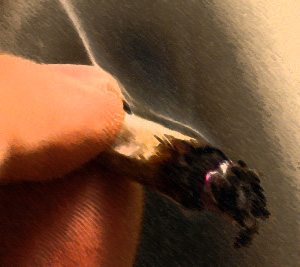Does the hole represent faith? Redemption?
Faith and redemption are a big part of it—especially in terms of the story’s outcome. The parents and the children have very different relationships with faith, and different concepts of redemption. I think that the hole also represents the moment we decide to do something (like dig in the backyard) that we suddenly realize we can’t reverse. The choice takes over and sets the course for everything that follows.
The narrator believes in this hole. She believes in it so much that she skips a date to guard the hole. She believes in it still as she watches her mother pack her suitcase and haul it to the end of the driveway. By the end of the story, she dreams the hole consumes her. But hasn’t it already?
Definitely. I think the narrator is first consumed by her parents’ wishes, and her obligations to them as they become more troubled. As the parents divide and dissolve, the hole becomes the more vivid and oppressive reality in the siblings’ lives. The narrator abides by the hole, at first out of obligation, then out of belief in it, and maybe out of hope that she can maintain some control. So when the flood comes, I like to imagine that it’s carrying the siblings someplace new (and dry), where they can start over together. No more holes or duties. The flood is a happy ending, really.
The narrator’s brother was born with gills. Her sister can float. What does this mean in terms of the story?
These attributes are their means of survival—they can navigate the hole by swimming through it or floating above it. The brother was born with what he would need to escape, and the little sister adapted, so maybe they were fated to the hole before the father ever dug it. I think the narrator’s power comes from her voice, the ability to put context to experience, and so the three of them are kind of complementary. They fit together like a puzzle.
Plus, I like the idea of weird little superpowers, and that things that seem to be our defects can actually be assets.
You’re a fiction reader for Our Stories. Tell us about the aim of this magazine, as it’s a bit different from your standard literary journal.
What I love about Our Stories (and I’m a relative newcomer) is that they believe in not just reading the work that’s submitted, but in really communicating with the writer by commenting, asking questions, and letting the writer know what’s working, what’s exciting. This opens up a dialogue, and sometimes that dialogue continues as it would in a workshop. It energizes the submission process. And I think there’s generosity and candor built in to this approach that benefits the writing community-at-large.
This issue marks SmokeLong’s fifth anniversary, which has me thinking about longevity and growth. There’s no denying the literary arena is a fickle one, with journals coming and going, writers shooting onto the scene then falling into a long hiatus, editors changing houses, agents merging, and the trends! Don’t even get me started! How do you, as a writer, endure the ups and downs? Have you experienced any setbacks? What measures have you taken to grow?
Congratulations on five years! You know, I think you’re right about things constantly shifting in the literary world. I suppose it could be discouraging, but I think that very element of chance makes our field exciting. When things change, it creates space for new approaches, new conversations and risk-taking. After all, what do we have to lose? Plus, I have faith in the process of making new work and engaging with others’ work, and trusting that the exchange is intrinsically valuable. So I’m staying with it. That’s the greatest measure I’ve taken to grow: trading pages with writers I admire, then getting back to work.



 The core workshop of SmokeLong Fitness is all in writing, so you can take part from anywhere at anytime. We are excited about creating a supportive, consistent and structured environment for flash writers to work on their craft in a community. We are thrilled and proud to say that our workshop participants have won, placed, or been listed in every major flash competition. Community works.
The core workshop of SmokeLong Fitness is all in writing, so you can take part from anywhere at anytime. We are excited about creating a supportive, consistent and structured environment for flash writers to work on their craft in a community. We are thrilled and proud to say that our workshop participants have won, placed, or been listed in every major flash competition. Community works.